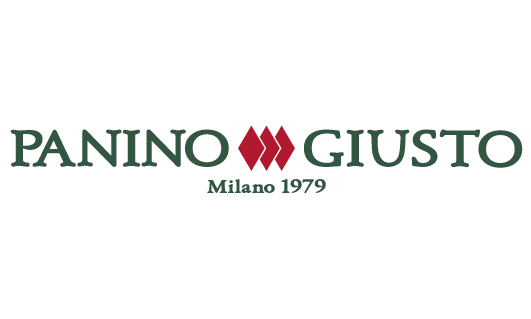

Panino Giusto SpA Società Benefit

Metropolitan City of Milan, Italy
January 2020
Food products
Wholesale/Retail
France,
Italy,
Japan,
United Kingdom
Panino Giusto is the Italian casual-dining company that revolutionized the Milanese lunch habit in the 80s, proposing the Panino as a high quality gastronomic concept. It was in Milan, on 1979, that Panino Giusto opened its first restaurant. The success was immediate and the company grew and spread the culture of the Italian Panino, a mix of local tradition, mastery, creativity, in Italy and around the world. Their concern for quality and sustainability is the leitmotiv of our activities from the selection of raw materials to the preparation of their dishes. Thus their raw materials come from producers inspired by excellence and respect for the times of Nature. Family business enterprises focused on handing on their mastery and their awareness on the importance of preserving the environment and the ecosystem from generations to generations. They prepare the Panino at the order with fresh ingredients, that allows them to ensure top quality while minimizing food waste. In 2019 Panino Giusto changed the vision in “to make the world more giusto through a panino”, giusto meaning honest, correct, sustainable. They want to be a solid and supportive enterprise that works not only for economic benefits but also for the common good. This is the way we do business, this is the vision.
Overall B Impact Score
Governance 17.7
Governance evaluates a company's overall mission, engagement around its social/environmental impact, ethics, and transparency. This section also evaluates the ability of a company to protect their mission and formally consider stakeholders in decision making through their corporate structure (e.g. benefit corporation) or corporate governing documents.
What is this? A company with an Impact Business Model is intentionally designed to create a specific positive outcome for one of its stakeholders - such as workers, community, environment, or customers.
Workers 24.5
Workers evaluates a company’s contributions to its employees’ financial security, health & safety, wellness, career development, and engagement & satisfaction. In addition, this section recognizes business models designed to benefit workers, such as companies that are at least 40% owned by non-executive employees and those that have workforce development programs to support individuals with barriers to employment.
What is this? A company with an Impact Business Model is intentionally designed to create a specific positive outcome for one of its stakeholders - such as workers, community, environment, or customers.
Community 33.9
Community evaluates a company’s engagement with and impact on the communities in which it operates, hires from, and sources from. Topics include diversity, equity & inclusion, economic impact, civic engagement, charitable giving, and supply chain management. In addition, this section recognizes business models that are designed to address specific community-oriented problems, such as poverty alleviation through fair trade sourcing or distribution via microenterprises, producer cooperative models, locally focused economic development, and formal charitable giving commitments.
What is this? A company with an Impact Business Model is intentionally designed to create a specific positive outcome for one of its stakeholders - such as workers, community, environment, or customers.
Environment 23.1
Environment evaluates a company’s overall environmental management practices as well as its impact on the air, climate, water, land, and biodiversity. This includes the direct impact of a company’s operations and, when applicable its supply chain and distribution channels. This section also recognizes companies with environmentally innovative production processes and those that sell products or services that have a positive environmental impact. Some examples might include products and services that create renewable energy, reduce consumption or waste, conserve land or wildlife, provide less toxic alternatives to the market, or educate people about environmental problems.
Customers 3.4
Customers evaluates a company’s stewardship of its customers through the quality of its products and services, ethical marketing, data privacy and security, and feedback channels. In addition, this section recognizes products or services that are designed to address a particular social problem for or through its customers, such as health or educational products, arts & media products, serving underserved customers/clients, and services that improve the social impact of other businesses or organizations.